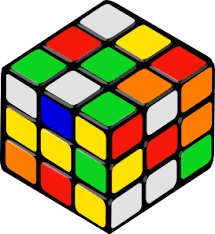Is curiosity more valuable than knowledge?
Before I start let me make clear that I fully understand that these are not mutually exclusive and are in fact intrinsically linked. Yet.... ask yourself this question which Isaac Morehouse answers in his article on this very topic https://medium.com/the-mission/curiosity-is-better-than-knowledge-a35b4074ba81:
If you could be the most knowledgable individual in the world or the most curious person in the world which would you choose?
Knowledge is a powerful thing without question, some may consider it a dangerous thing but the value of knowledge is a deteriorating commodity. Moreover, could it be that knowledge can actually create limits and build barriers where they need not exist?
So where does this fit for testers?
Let me change the question a little........
Is not knowing something more powerful than knowing something?
Whilst this is not an absolute by any stretch of the imagination, the knowledge gap is a hugely beneficial state, particularly to a tester.
There are exceptions to this but as a general rule once you know how something is supposed to work you generally try to use it how it was designed to work. Consider this example if you will:
Generally when you get something new like a phone or a laptop you are at your most curious. You want to play with it, you want to see everything work and see everything it has to offer. You will probably find and use features of your phone or computer when you first get it that you never use or need again. You may come across features that you aren't sure how to use. I bet a pound to a penny that most people will try to figure it out for themselves before consulting 'instructions'. Eventually as your develop more knowledge of how things work you will lose your curiosity and use the things you know work in the way you know they work.
Why is this the case? Well it's human nature...... as humans why hate not knowing something. We generally have plenty that we don't know and therefore have to prioritise what things are valuable enough to want to know. As we learn more about something, generally our knowledge grows and our curiosity drops which leads us away from discovery and towards acceptance.
It's no coincidence that you learn more and take in more information when you are younger and have less knowledge. You are inquisitive, innocent and have a completely open mind.
As testers we are representing all of the users of our software and therefore we need to create the same kind of curiosity that a user will have when they first come across and use our software or a new version for the first time.
But surely product knowledge is critical to be able to test?
Some product or Domain knowledge can be useful when combined with the right level of curiosity. Domain knowledge can provide value in a test function but without a sufficient amount of curiosity how do we explore and look for the things we don't know that we don't know.
Herein lies the often hidden catch with testing. We are often provided with knowledge in the form of a specification or detailed business requirements. All to often such requirements or detail get seen as the gospel for any given change. Whilst I fully understand the purpose of such detail, this 'knowledge' can prove dangerous to effective testing.
We don't know what we don't know until we know it.
I might add here that I have yet to find out where this quote originates from..... a knowledge gap that has peaked my curiosity but I intend on finding out.
This applies to all of us no matter how much knowledge we do or don't have. We can't be confident we have considered everything for a new product or function unless we have explored the possibilities and considered the idea that there are things we don't know.
This brings me back round to the knowledge gap. Identifying that we might not or in fact probably don't know everything creates the curiosity (no matter how much detail we have in the form of requirements or documentation). The curiosity drives out questions and questions are a testers best friend. Asking questions of the software, of the domain experts, of the technical experts is how we explore the unknown. Exploring the unknown, as discussed earlier, is often what users will be doing when they get new software or functions.
So ask yourself as a tester, do you have sufficient curiosity? Are you aware of the the knowledge gaps that exist? Is the knowledge you possess creating barriers to your approach to testing?
Now as I've not left a random image for a while, I give you................. the first image displayed on my google search of 'random image':





